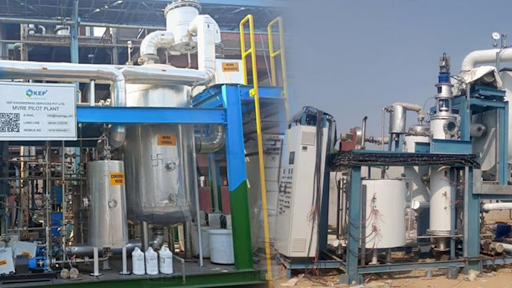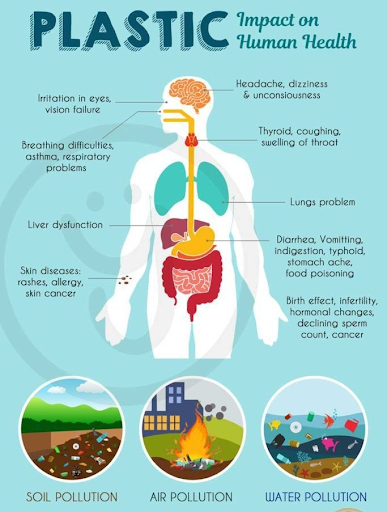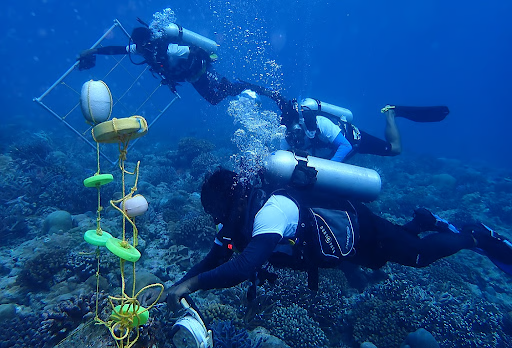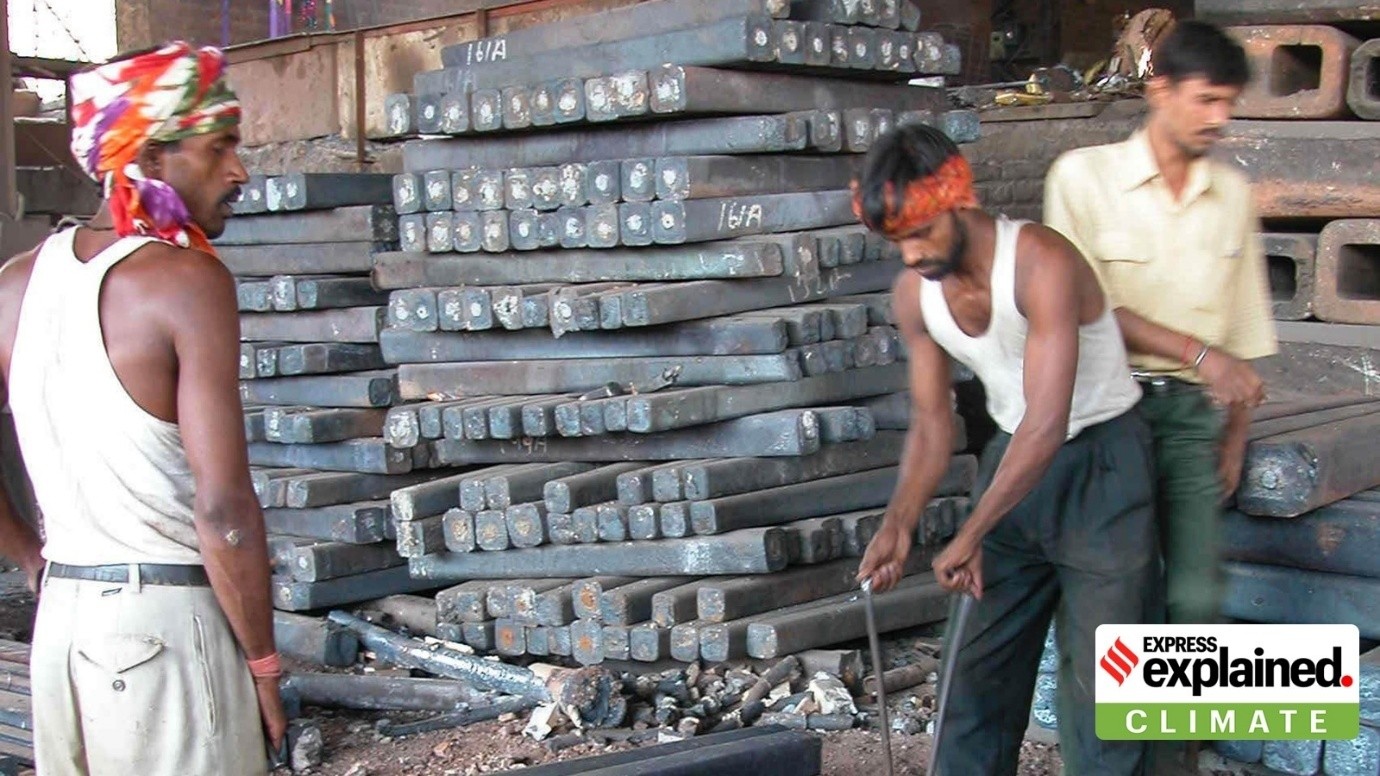



A plastic-free future depends on a robust policy framework and behavioral change. The Plastic Waste Management Rules and Extended Producer Responsibility guidelines promote recycling. Challenges include enforcement, affordability, and convenience. Success requires stronger policy implementation, recycling innovation, formalizing the informal waste sector, and public awareness campaigns.

Copyright infringement not intended
Picture Courtesy: FREEPRESSJOURNAL
To achieve a plastic-free India, the country must overcome policy and behavioral challenges, including inconsistent enforcement of bans, a shortage of affordable alternatives, insufficient waste management infrastructure.
Plastic waste is any undesirable accumulation of discarded plastic objects and particles in the environment, including products like bottles, bags, and packaging, as well as microplastics
Slow to degrade: Traditional, petroleum-based plastics have a molecular structure that is difficult for microbes to break down. A single plastic bottle can take approximately 450 years to decompose, and a disposable diaper about 500 years.
Impact on wildlife: Animals mistake plastic waste for food, which can lead to starvation, choking, and internal injuries.
Effects on human health: Humans are exposed to microplastics and chemical additives from plastics through inhalation, consumption via food and water, and skin contact.
Environmental contamination: Plastic waste contaminates soil and water sources, and its production and incineration release harmful pollutants into the air.
Microplastics are everywhere: Found in oceans, soil, the atmosphere, drinking water, and even human blood and organs.

India ranks among the top global producers of plastic waste, generating over 9.3 million tonnes annually, contributing nearly one-fifth of the global total. Per capita plastic consumption stands at 11 kg, lower than the global average of 28 kg, but the population size amplifies the challenge.
Low Recycling Rates: Only 8% of plastic waste is recycled, with projections suggesting a marginal increase to 11% by 2035 if current trends persist. About 77% of urban waste, including plastics, ends up in open landfills, releasing harmful environmental debris.
Economic Loss: India risks losing $133 billion in material value from plastic packaging waste by 2030 due to inefficient recycling.
Global Projection: Global plastic waste is expected to nearly triple from 353 million tonnes in 2019 to 1,014 million tonnes by 2060.
Solid Waste Management Rules, 2016: Mandate waste segregation at source, manufacturer responsibility, and scientific disposal practices.
Plastic Waste Management (PWM) Rules, 2016: Introduced Extended Producer Responsibility (EPR), raised plastic carry bag thickness to 50 microns, and mandated segregation in rural areas.
PWM Amendment Rules, 2018: Phased out non-recyclable Multi-Layered Plastics (MLP) and introduced producer registration under CPCB.
PWM Amendment Rules, 2021: Banned Single-Use Plastics (SUPs) by July 2022, increased plastic bag thickness to 120 microns, and strengthened EPR for packaging waste.
PWM Amendment Rules, 2022: Set mandatory recycling and reuse targets with environmental compensation for non-compliance, promoting a circular economy.
PWM Amendment Rules, 2024: Defined registration, reporting, and certification for manufacturers, including biodegradable plastics, and mandated pre-consumer waste reporting.
Single-use plastic Ban (2022): Prohibited items like plastic ear buds, straws, cutlery, and thermocol decorations to curb high-littering plastics.
Swachh Bharat Mission – Urban 2.0: Targets 100% waste segregation and Material Recovery Facilities.
Swachh Sarvekshan: Encourages cities to improve waste management practices.
National Plastic Waste Reporting Portal (2025): Enables online reporting for transparency and monitoring.
Inadequate Infrastructure
Weak EPR Implementation
Fragmented Governance
E-commerce Packaging Surge: E-commerce sector generated 1.2 million tonnes of plastic waste in 2023, driven by SUPs like bubble wraps and shrink wraps.
Limited Alternatives: Biodegradable alternatives like bagasse or palm leaf products are 2–5 times costlier than traditional plastics, hindering scalability.
Decentralized Waste Management
Establish ward-level Material Recovery Facilities (MRFs) with AI-powered sorting to enhance recycling efficiency and reduce transportation costs.
Strengthened EPR Framework
Promoting Plastic Alternatives
Formalizing the Informal Sector: Recognize informal waste workers as “environmental service providers” and provide micro-loans, PPE, and training.
Technology-Driven Enforcement: Use AI-powered surveillance and mobile apps for real-time monitoring of plastic usage and violations. Example: China’s facial recognition in trash bins improved compliance.
Public-Private Partnerships (PPPs): To develop advanced recycling technologies, such as plastic-to-fuel systems and 3D printing filaments from recycled plastics. Offer subsidies to clean-tech startups.
National Awareness Campaigns: Launch campaigns to promote waste segregation and sustainable consumption, inspired by initiatives like Kashmir’s “Give Plastic-Take Gold” program. Integrate waste management into school curricula to encourage sustainable habits early.
India’s plastic waste crisis, with over 9 million tonnes generated annually, demands urgent action to achieve SDG 12 (Responsible Consumption and Production). By strengthening policies, enhancing infrastructure, and fostering innovation, India can transform its plastic waste challenge into an economic opportunity.
Source: outlookbusiness
|
PRACTICE QUESTION Q. While policies are crucial, a plastic-free India hinges on behavioral change. Critically analyze. 150 words |
A system that keeps resources in use for as long as possible through reuse, recycling, and remanufacturing, as opposed to a linear "take-make-dispose" model.
EPR is a policy approach that extends a producer's responsibility for a product to the post-consumer stage of its life cycle, including its proper disposal or recycling.
A unique initiative by Khadi and Village Industries Commission (KVIC), that re-processes plastic waste into useful products like polythene-mixed paper sheets for use in Khadi industries, showcasing an innovative recycling model.






© 2026 iasgyan. All right reserved